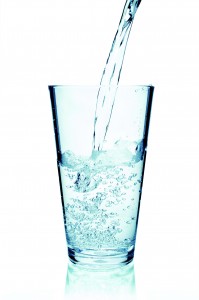 By Paula Duggan
By Paula Duggan
Dip NT CNM, CHEK Exercise Coach, EKI, NCEFE, MIANT
Scientific literature confirms that exercise and good nutrition increase our psychological resilience and help us to have a positive outlook on the world, so we look better, feel better and cope better in a world full of demands. Research also informs us that for a long, healthy and balanced life, daily exercise is one of the magic ingredients. We are not meant to be sedentary beings, we are designed to physically engage with the planet we inhabit. Now that Spring is here, it is a really great time to increase fitness. So if you are one of the many people taking to the streets, power walking, jogging, training for a marathon or weight training, Paula Duggan – an expert in nutrition and fitness and CNM lecturer – has some useful tips.
Hydration: This is vital in all stages of your schedule; ensuring you are hydrated before, during and after your training will greatly enhance your body’s resistance to overheating and dehydrating; even being 2% dehydrated can have an impact on your performance, causing muscle fatigue and loss of endurance capacity. Choose quality water with a good mineral balance and a PH of 7 or more. Sports drinks can be helpful for electrolyte balance but some do contain artificial sugars which can be damaging to the body. It is easy to make your own sports drink with a mixture of water, pure organic fruit juice like apple or grape, and 1/8 tsp of quality salt like Himalayan pink sea salt or Celtic sea salt which have the minerals your body needs to restore balance. Drink fluids cool but not cold – that can shock the system.
Nutrition: Sound nutrition can give you the tools to support programs of muscle gain or fat loss, improve recovery and help support the immune system. Each athlete will have their own individual macronutrient needs, e.g. the marathon runner will require more carbohydrates and the weight lifter will need more protein – with this in mind, it is important to note that too much carbohydrate can cause unwanted weight gain and too much protein can be damaging to the kidneys.
Pre-exercise suggestions:
The Aim is to keep blood sugar balanced with low GI/GL, protein and some fat.
Organic porridge oats soaked overnight in water then rinsed and cooked in a small pot with your milk of choice and served with blueberries, banana or apple, cinnamon, tablespoon of flax or mixed seeds and 1 teaspoon of Manuka honey 10+. This will provide you with Low GI/GL oats, antioxidants in the fruits, seeds for healthy omega fats, cinnamon to aid blood sugar balance and Manuka to help keep your immunity strong. Soaking your oats overnight will allow for better mineral absorption.
Wholegrain bread like rye, spelt or wheat (if you tolerate it), with quality eggs, tomatoes and 1 teaspoon of flaxseed or extra virgin olive oil to include some healthy fats and balance your meal.
Post-exercise suggestions:
The Aim is to restore glycogen, aid muscle repair and support immunity with a balanced meal of carbs, protein and fats.
Homemade sports drink to aid in electrolyte balance.
Quality whey, hemp, pea or rice based protein smoothie with cold pressed coconut milk, flax oil, frozen berries and a small banana – which is high in sugar and potassium.
Quality chicken with basmati rice and sautéed vegetables of choice – like onions, garlic, spinach and peas.
Other Top foods to include in your diet while increasing fitness:
Omega 3 rich foods like salmon, mackerel, sardines, milled flaxseed, flax oil or chia seed. Omega 3 is made up of EPA and DHA. EPA helps reduce inflammation in the body and DHA aids brain function. To boost your levels of Omega 3 and keep in ratio with Omega 6 fats, include ground seeds to your porridge or whole grain cereal/muesli, eat good quality fish 3 times per week and snack on Omega 6 rich nuts like walnuts or almonds and seeds such as pumpkin or sunflower.
Medium Chain Triglycerides (MCT’s) are burnt in a similar manner to carbohydrates and may have a sparing effect on muscle glycogen in medium and intense exercise. MCT’s can be found in coconut oil; the best source would be organic raw extra virgin coconut oil which you will find in the health store. You can use it when cooking stir fries or curries or add a teaspoon to your smoothie.
Antioxidant Rich Foods will help your body disarm free radicals which are produced in the body as part of energy metabolism. Exercise increases free radicals, so antioxidant rich food should be included such as berries, broccoli, tomatoes, carrots, spinach, garlic, herbs, 70% dark chocolate and green tea. Vitamin E is a powerful antioxidant found in foods like avocado, almonds, egg yolk and sesame seeds.
Whole Grains are slow releasing grains that help keep your blood sugar stabilized with a steady release of energy to your muscles; examples: quinoa which is protein rich, brown rice, oats, millet, rye, spelt, wheat germ and wholegrain pastas. Read the food label and bear in mind that whole wheat doesn’t mean whole grain.
Quality Proteins: Eggs, chicken, lamb, turkey, fish, lean beef, lentils and beans.
Fats: nuts, seeds, avocados, flax oil, extra virgin olive oil, sesame oil. Cook on a low heat with olive oil and a high heat with coconut oil.
With a little time and effort to include exercise in your daily routine, and a plan for meals and snacks, you can look and feel wonderful!
For a private consultation with Paula, contact ptnpauladuggan@gmail.com or 0877701700
Application for all CNM diploma courses: Nutritional Medicine, Herbal Medicine, Acupuncture, Naturopathy, and short courses – Nutrition for Everyday Living (starting in March) – now being accepted.
Contact 01 2353094 or dublininfo@naturopathy-ireland.com or www.naturopathy.ie

![iStock_000013912225Medium-199×300[1]](https://www.positivelife.ie/dev/wp-content/uploads/2011/03/iStock_000013912225Medium-199x3001.jpg)
